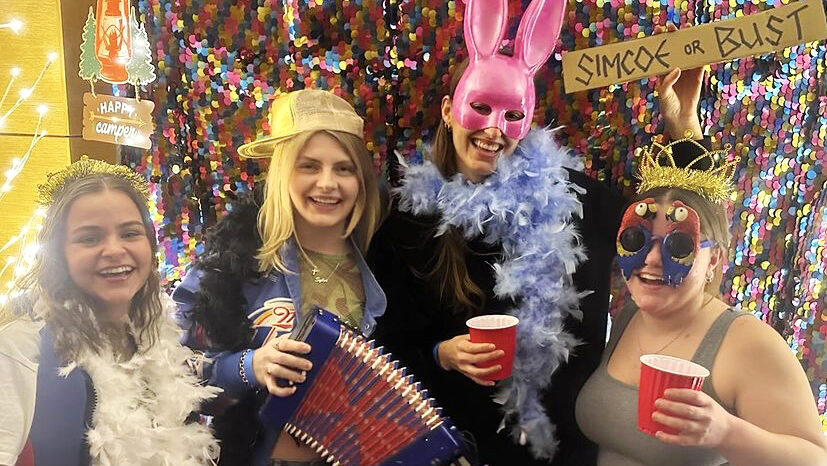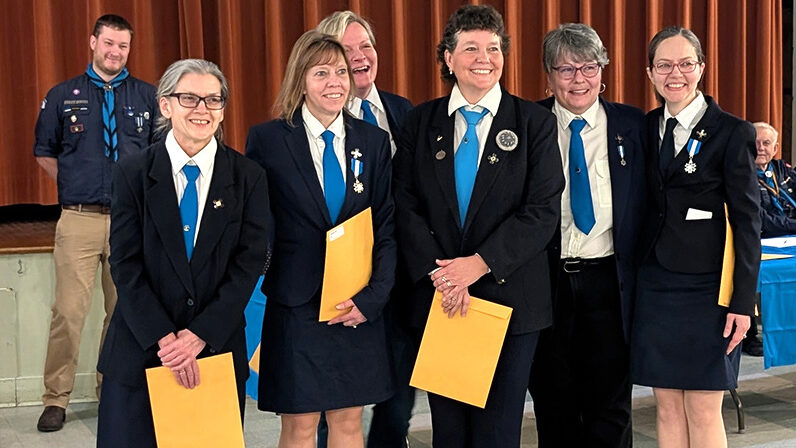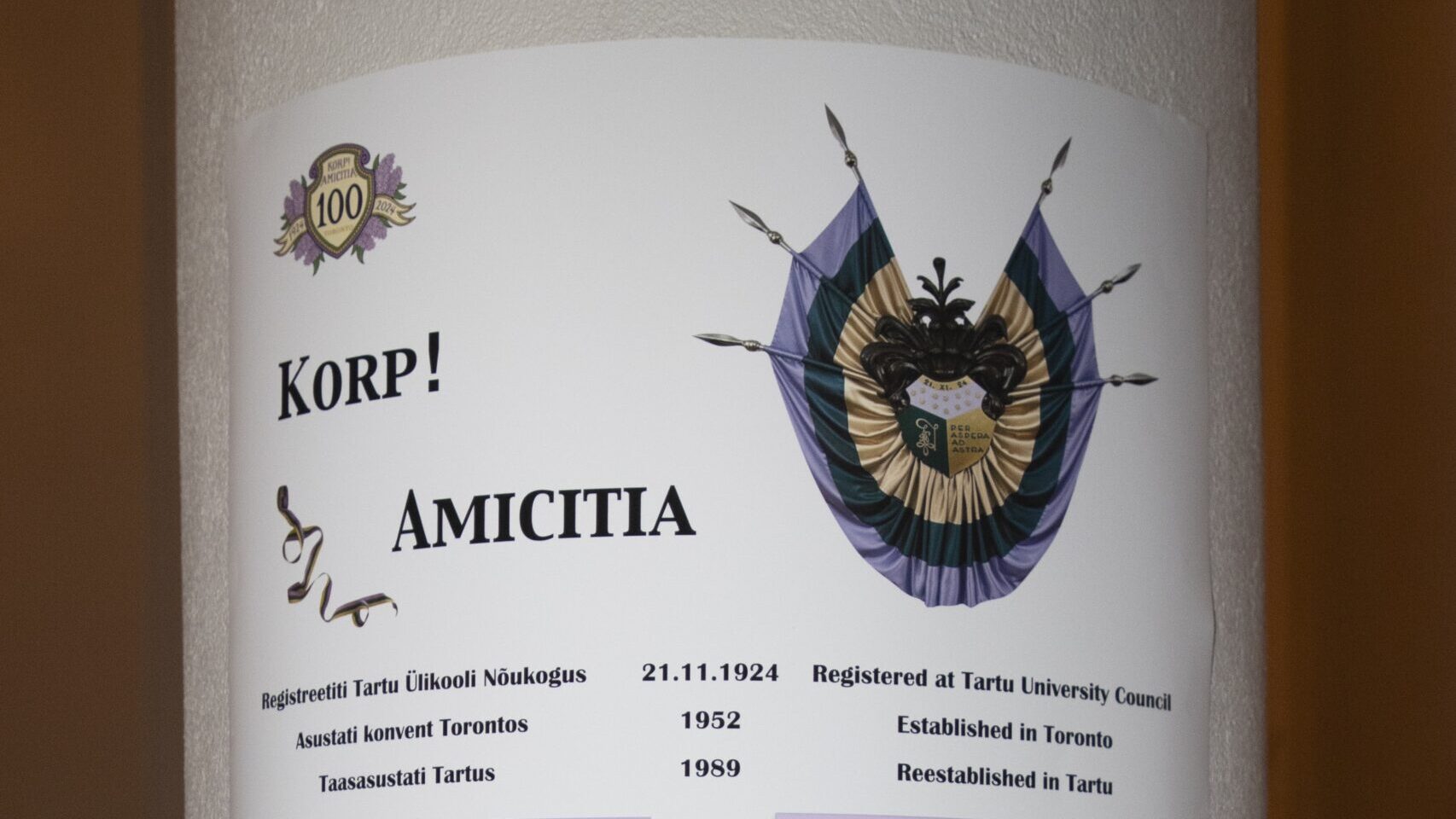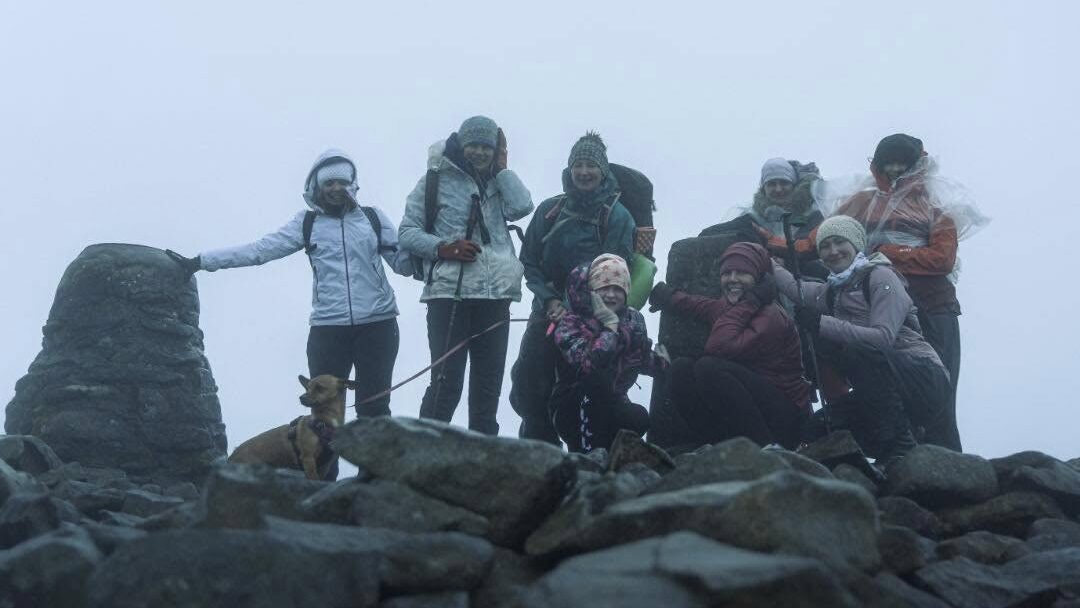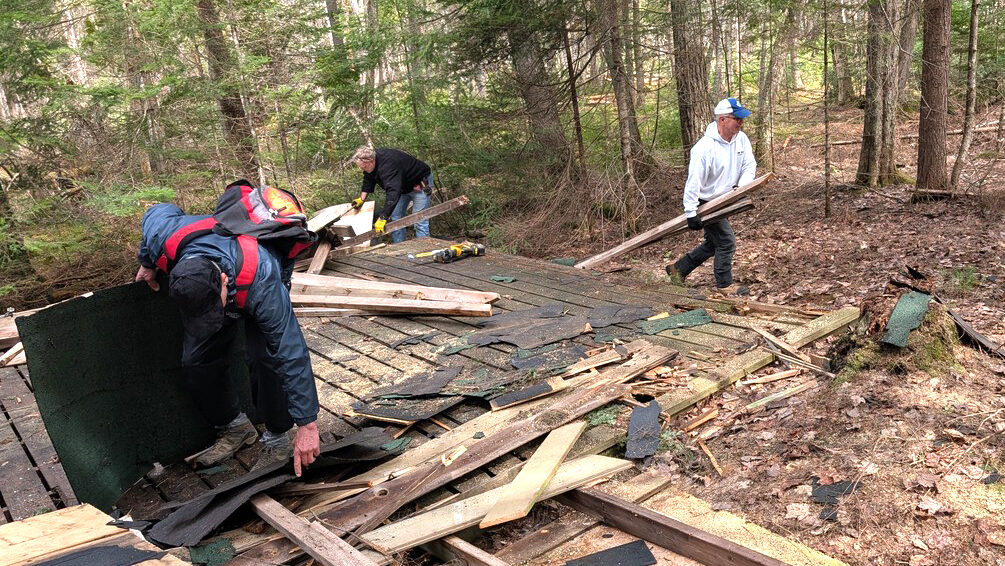As friends and family reconnected, chatted, and danced the night away, the event served as a poignant reminder of the significance that staying connected to your community holds.
Those in attendance included campers, alumni, friends and family, and the individuals that have continued supporting Jõekääru as board members, volunteers, or employees in one capacity or another.
Seeing the community coalesce in such a positive and lively manner reaffirms the value of a tried and true Estonian “laager” (camp) tradition: an energetic, foot-stomping, arm-swinging tants (dance). Live music brings people together, especially music that a community has grown up with, bonded over, and danced together to. Events such as the “Baltic Bash” and other community dances united people in a similar manner, fostering connection between people who may have outgrown the youth clubs that united them in the first place. A lack of these events means that there is a lack of spaces for the community to unite and connect in a way that brings them back to the “good old days”. This partly explains why it’s common to hear among younger generations say that they are missing out on the stronger sense of community shared between the people of their parents’ generation. It’s why we are seeing other youth groups, including Noored Eestlased Torontos (NET), making efforts to offer these kinds of events. There is no space for unity and connection like the dance floor.
For campers and alumni alike, these dances are deeply cherished traditions.
Aside from fundraising events (much like Jõekääru’s), the community dance spaces that are available to younger generations are mostly limited to summer camps. At the end every week, campers gather in Jõekääru’s main hall for a dance, marking the end of a successful session. Seedrioru does something similar on their outdoor basketball court. The same holds true for Kotkajärve too, as well as the American-Estonian summer camps.
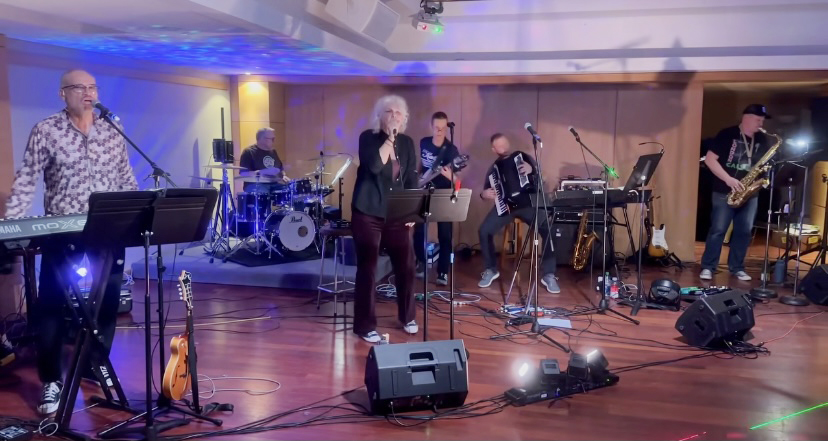
For campers and alumni alike, these dances are deeply cherished traditions. Choreographed routines to beloved “camp classics” are unique to campers and, in most cases, unfamiliar to non-camp goers. The routines are passed on through generations, creating unity and connection both on and off the dancefloor. It is within these processes—the inside jokes, laugher, and memories being created—that you’ll find a sense of camaraderie unique to the Estonian camp experience.
The “FUN”draiser’s live music (and, perhaps, its even livelier crowd), emulated the atmosphere of camp dances, testifying to the event’s success. It’s a keen reminder that community events—and especially community dances—are important for keeping that special camaraderie, connection, and unity alive.
Be sure to check out our event calendar so you never miss another community event. Access it on our website — eestielu.ca
This article was written by Natalie Jenkins as part of the Local Journalism Initiative.
